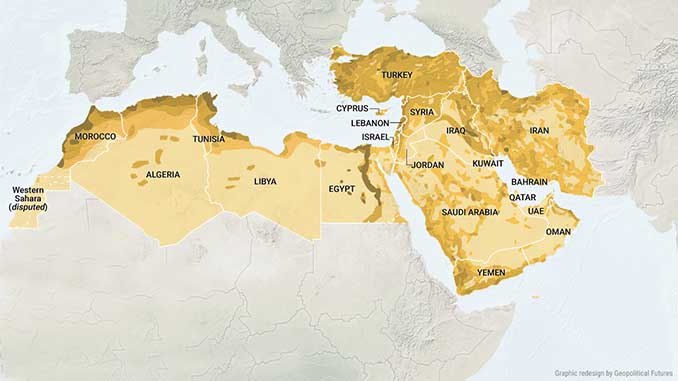
Arabs and Israelis have gone to war several times since 1948, year of Israel's creation. The recurrence of armed conflicts and the so-called Palestinian Question maintained the rivalry between them as the main geopolitical issue in the Middle East in the second half of the century 20 and at the beginning of this century 21. However, Recent events indicate that this situation is beginning to change.
Within about a month, in agreements brokered by the US government, who were baptized “Abraham's Accords”, the governments of Israel, United Arab Emirates and Bahrain have signed treaties to normalize diplomatic relations between the two Arab countries and Israel. The two nations came together, in this way, to the group that until then was composed of only two other countries: Egypt and Jordan, as Arab nations that maintain normal diplomatic relations with the Israelis.
It is clear that such an agreement can be celebrated, after all, is another opportunity for peace in the region. In addition to the exchange of ambassadors, the activation of direct flights and the intensification of trade, there are several other fields where there may be opportunities for integration with mutual benefits, as tourism, farming, teaching and research, culture, technology, telecommunications and many others.
But, not everyone shares this opinion. The most dissatisfied are the Palestinians, who considered the agreement a betrayal of their cause. The foreign minister of the Palestinian Authority, Riad Malki, declared that the agreement disregarded the Arab Peace Initiative decision, according to which the normalization of Arab-Israeli relations would only be acceptable in return for the return of borders to the situation before the Six Day War, of 1967, that is, with the Israeli eviction from the occupied West Bank territories and with the Palestinian capital in East Jerusalem.
The fact that the Arab League refused to condemn the deals also frustrated the Palestinians, because it indicates that other countries in the Persian Gulf, like Oman, or even Saudi Arabia, can, no future, take the same path. By the way, it is true that the United Arab Emirates and Bahrain only decided to accept the agreement with Israel because they count on Saudi Arabia's consent, regional power with a lot of influence over the governments of both countries.
Iran has also declared strong opposition, calling the Abraham Accords “a shameful act that will forever remain in the memory of Palestinians and the free nations of the world”. Non-Arab regional giant, whose majority of the population is Persian, Iran has been waging a proxy war against Saudi Arabia in Yemen since 2015, supporting the Houthi Shiite militia against the Yemeni government that, in its turn, is supported by the Saudis. Besides that, Iranian assertiveness in the region, characterized by support for the Shiite government in Iraq, to the government of Qatar, to the Hezbollah group, no Lebanon, to the government of Bashar al Assad, in Syria, to Hamas, in the Gaza Strip, as well as to various Shiite regional militias, is cause for distrust on the part of the Saudis, who see their leadership position in the Arab world increasingly threatened.
Like this, it is clear that the dispute between Saudi Arabia and Iran for regional leadership contributed, with great weight, for the agreements to happen. From the Saudis' point of view, rely on political support, military and intelligence, even if veiled, of the Israelis, can be decisive.
The Israelis, in its turn, as they approached the Saudis, obtain a great geopolitical victory, because they take the Palestinian issue off the stage and push the rivalry between Iran and Saudi Arabia into the spotlight, that happens to be considered, by the international community and, mainly, by countries in the region, the main security problem in the Middle East.
Palestinians immediately felt the weakening of Arab support for their cause. The normalization of diplomatic relations between Israel, United Arab Emirates and Bahrain served as a stimulus for the two rival Palestinian factions, o Fatah, that controls the West Bank, and Hamas, which controls the Gaza Strip, to seek an understanding. At a meeting held in Istanbul, In Turkey, its representatives decided to hold elections in the Palestinian territories within six months, to choose the president of the Palestinian Authority, as well as members of the legislature and the Central Committee of the Organization for the Liberation of Palestine. It is an attempt to seek consensus within the Palestinians themselves, that after more than a decade of internal disputes, see their cause weakened.
The Middle East is undergoing accelerated transformations, with regional actors gaining more and more prominence. The fragile regional geopolitical balance, built on the basis of border lines designed by European powers, is being challenged. Its reconstruction, on different bases, It will not be easy.
